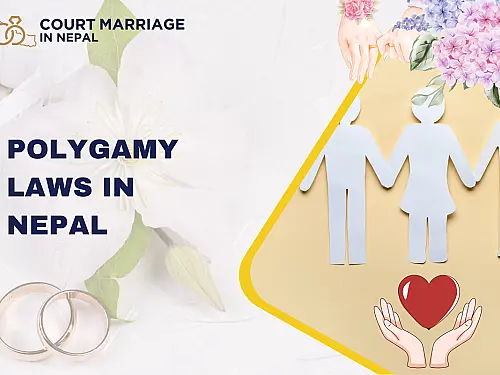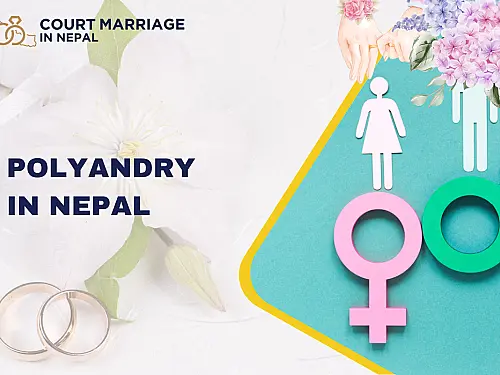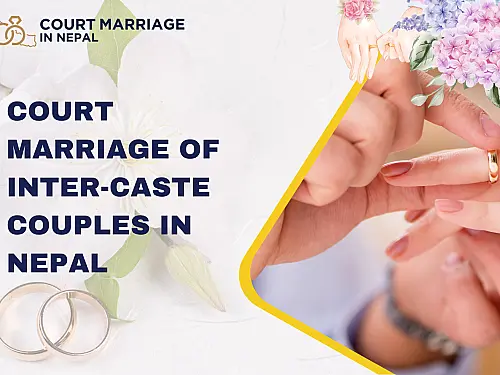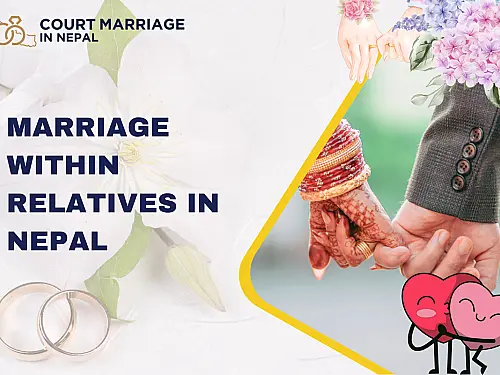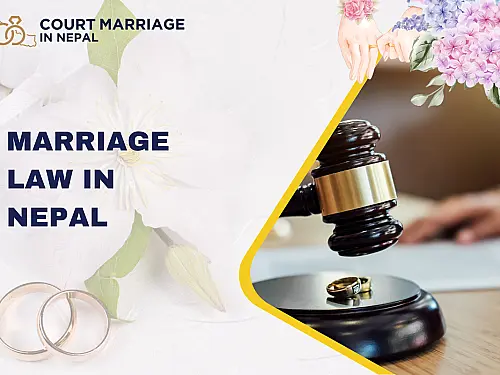Table of Contents
Ward marriage registration refers to the official documentation of a marriage at the local ward office, ensuring it is recognized legally by the government of Nepal. This procedure is relevant to marriages conducted via religious, cultural, or social ceremonies, along with formal civil unions, and is regulated by the Local Government Operation Act, 2074 and the National Civil Code, 2074.
Ward marriage registration is a crucial legal procedure that guarantees a marriage is formally acknowledged by the government. It offers an official document affirming that a couple is legally married, irrespective of whether the marriage took place through conventional ceremonies or as a civil union. This registration bolsters the legal basis of the relationship, rendering it enforceable by law.
The Local Government Operation Act, 2074 grants ward offices the authority to manage civil registration activities, such as marriages. The National Civil Code, 2074 establishes the legal structure regarding marriage, including the definition of marriage, mutual consent, and the rights and duties of spouses. Collectively, these regulations guarantee that marriages are both culturally or religiously recognized and legally enforceable.
A marriage recorded at the municipal office receives legal acknowledgment and can serve as evidence of marital status in different civil and legal situations. This encompasses seeking a spousal visa, establishing joint bank accounts, asserting inheritance rights, and securing legal safeguards in case of separation or conflict. Furthermore, it holds significant importance in matters concerning citizenship, particularly when children result from the partnership. Not registering a marriage can result in legal issues, especially related to property, custody, or divorce proceedings. Thus, completing a marriage registration at the ward office is a crucial action for couples in Nepal to protect their matrimonial relationship within the legal framework.
Legal Basis
The regulatory structure for ward marriage registration relies on two main statutes:
Local Governance Operation Act, 2074
This law empowers ward offices to oversee essential registration services, such as marriages. It allows local authorities to serve as the official entity that documents and verifies personal events like births, deaths, and marriages.
National Civil Code, 2074
This law outlines the criteria for a legitimate marriage, incorporating key elements like mutual agreement, age limitations, and the privileges and duties of partners. It guarantees that upon registration of a marriage, it becomes legally binding and governed by civil law regulations.
Collectively, these regulations guarantee that every marriage be it traditional or civil is both socially or culturally accepted and legally binding in judicial settings.
Legal Significance and Applications of Marriage Registration
A registered marriage is recognized by law and can act as formal proof of a marital connection in various civil and legal issues.
Several important applications and advantages consist of:
Visa and Immigration
When applying for a spousal visa or seeking family reunification overseas, a marriage certificate is frequently necessary.
Banking and Real Estate
It enables the establishment of joint bank accounts, the transfer of property, and the management of collective financial issues.
Inheritance Rights
A legally registered spouse acquires the right to inherit the property of the other in case of death.
Legal Safeguards
In instances of conflicts, separation, spousal support, or child guardianship, a formal marriage grants both individuals binding legal entitlements.
Citizenship Concerns
If a child is born from the union, the certificate might be required when seeking the child's citizenship or school enrollment.
Consequences of Not Registering a Marriage
Not registering a marriage can result in numerous legal and practical challenges, such as:
Absence of Legal Evidence
Without registration, demonstrating the marriage's existence in court or in administrative processes becomes challenging.
Issues in Separation or Divorce
Legal processes such as property division or alimony requests may be obstructed by insufficient documentation.
Inheritance Issues
Surviving spouses might encounter difficulties securing their legal inheritance without marriage documentation.
Custody Disputes
If a couple separates, establishing child custody rights can be more challenging without an official marriage certificate.
Eligibility Criteria for Ward Marriage Registration in Nepal
Age
Each person planning to get married must be a minimum of 20 years old. In Nepal, marriages involving individuals under this age, even with parental approval, lack legal recognition. These unions are recognized as child marriages and are subject to legal penalties according to the National Civil Code and the Criminal Code of Nepal.
Consent
Both parties must willingly consent to the marriage. There must be voluntary agreement without any type of coercion, pressure, undue influence, or intimidation. Moreover, both parties need to be mentally capable, they must possess the ability to comprehend the significance and implications of marriage.
Relationship Status
The couple cannot be closely related by blood or through other legally prohibited relationships (i.e., incestuous relationships are forbidden). Both individuals must be single at the time of marriage registration, except if they are widowed or have obtained a legal divorce. Bigamy (holding more than one spouse simultaneously) is against the law and subject to punishment.
Required Documents for Ward Marriage Registration
To effectively register a marriage at the ward office in Nepal, the subsequent documents are required for submission:
Certificates of Citizenship
Originals and copies of citizenship certificates for both the bride and groom are necessary as essential identification and evidence of nationality.
Passport-Sized Photos
Current 4-5 passport-sized pictures of each person.
Proof of Matrimony
This may encompass:
Wedding ceremony pictures
Invitation card
A letter from the clergyman, lama, or officiant who performed the wedding
These papers assist in confirming that a wedding ceremony took place.
Witness Documents
Citizenship documents from a minimum of two adult witnesses who attended the marriage ceremony are required to be submitted. These witnesses might need to show up in person for registration.
Migration Certificate (Basai Sarai)
If the couple is applying to register their marriage in a ward different from their permanent residence, they are required to present a migration certificate from their initial ward office.
Certificate of Single/Unmarried Status
In certain situations, particularly for court marriages or when there is uncertainty, the ward office might ask for a certificate verifying the single/unmarried status of both individuals.
Step-by-Step Registration Process for Ward Marriage in Nepal
Marriage registration at a local ward office in Nepal confirms that a couple's partnership is officially acknowledged. Here is an in-depth, step-by-step manual for finishing this procedure:
Choose the Correct Ward Office
The initial step is deciding where to file the marriage registration. As per Nepalese law, couples may register their marriage at the ward office corresponding to either the bride’s or groom’s permanent address indicated on their citizenship certificates. If the couple resides outside their permanent home, they need to acquire a migration certificate (Basai Sarai) to enroll in another ward.
Acquire and Fill Out the Registration Form
Go to the selected ward office and obtain the official marriage registration form. This form may be accessible in printed form at the ward or can be downloaded from certain local government websites. You are required to provide the subsequent information:
Complete names of the bride and groom
Birth dates and ages
Locations (permanent and temporary)
Citizenship identifiers
Names of parents
Date and location of the wedding
Kind of marriage (cultural, religious, or legal)
Ensure that all details are correct and correspond with the documents you intend to submit.
Send Application and Papers
After completing the form, you must deliver it in person to the ward office, accompanied by the necessary documents. Both parties need to be physically present, along with at least two adult witnesses. All documents (citizenship, photos, marriage proof, witness papers) should be provided in original and photocopied versions. The witnesses are required to present their original citizenship certificates and might have to sign the application in the presence of the ward officer.
Submit Registration Payment
After verification is done, you must pay a registration fee. This charge usually amounts to about NPR 500, although the figure can differ slightly based on the regulations of the local government. Payment can be done at the revenue counter or accounting department of the ward office. A receipt will be generated, which must be retained securely as part of the registration documentation.
Marriage Certificate Issuance
Once all procedures are finalized and the application is approved, the ward office will provide the official marriage certificate. The certificate is typically created and provided within 15 business days, although the timeline can change based on the ward's workload. This document functions as legal evidence of marriage and can be utilized for visa applications, inheritance matters, citizenship enrollment, banking, and legal proceedings. Partners must verify all information on the certificate for correctness prior to departing the office.
Importance and Benefits
In Nepal, marriage registration is not just a formality, it is a legal requirement. Regardless of whether a marriage is conducted via religious ceremonies, cultural traditions, or as a civil union, its legal recognition relies on registration at the local municipal office. Here are the main reasons this process is vital and the advantages it offers:
Judicial Acknowledgment
A marriage certificate provided by the ward office serves as the official and legal evidence of a marital relationship. It is officially acknowledged by Nepalese law and is crucial in multiple significant domains:
Children's citizenship applications often need evidence of the parents' legal marital status.
Immigration and Visa Processing
When applying for spousal visas, family reunification, or dependent visas overseas, a marriage certificate is required.
Inheritance Rights
When a spouse passes away, the marriage certificate acts as evidence to access property or pension entitlements.
Legal Matters
In cases involving divorce, spousal support, child custody, or property conflicts, courts necessitate a valid marriage certificate as legal proof.
In the absence of this document, asserting marital rights or resolving legal claims in the future becomes quite challenging.
Entitlements and Safeguards
Marriage registration offers crucial legal safeguards and guarantees that both individuals can exercise their marital rights as specified in Nepal’s National Civil Code.
Property Rights
A registered partner possesses legal claim to jointly held or shared assets. In the event of separation or passing, this documentation guarantees equitable distribution of assets.
Spousal Support
Upon separation or divorce, a legal marriage entitles one partner to pursue a claim for alimony or maintenance from the other.
Child Custody and Guardianship
The legal custody and rights to make decisions about children are affected by the parents' marital status. A marriage certificate reinforces claims of custody and guardianship.
Safety from Bigamy
Registration aids in avoiding simultaneous marriages, which are forbidden in Nepal. It safeguards partners from being inadvertently entangled in polygamous situations.
This legal protection is particularly crucial for women and children, aiding in the prevention of exploitation and guaranteeing access to justice.
Consistency and Adherence to Regulations
Nepal’s regulations require that every marriage regardless of the manner in which it is conducted needs to be registered at the ward office. This stipulation guarantees consistency in legal acknowledgment and equal access to entitlements under the law. Regardless of whether a marriage takes place in a Hindu temple, at a Buddhist or Christian ceremony, or via a court/civil procedure, registration is essential for it to be legally binding. It eliminates uncertainty, establishing a distinct legal status for couples in official documents, facilitating interactions with banks, government entities, and courts. Registration guarantees that every marriage is regarded the same, regardless of the couple's cultural or religious heritage. Not registering a marriage can lead to a couple being viewed as unmarried legally, regardless of their ceremonial union. This may result in significant legal and administrative problems in the future.
Summary Table: Ward Marriage Registration
| Step | Description |
|---|---|
| Eligibility | Both parties 20+ years, unmarried, not closely related, free consent |
| Documents | Citizenship, photos, marriage proof, witnesses’ citizenship, population card, migration certificate |
| Application | Submit form and documents at ward office (either bride’s or groom’s residence) |
| Verification | Ward office checks eligibility and documents |
| Fee | Around NPR 500 (varies) |
| Certificate Issuance | Within 15 business days after verification |
Conclusion
Ward marriage registration is a simple but essential legal process that validates the marital status according to Nepalese law. Whether the marriage took place through traditional, cultural, religious, or civil methods, it needs to be registered at the local ward office to receive official acknowledgment from the government. Couples must regard this process with gravity, as the marriage certificate obtained through ward registration is necessary for numerous legal, civil, and administrative reasons from obtaining citizenship for children, applying for spousal visas, securing property rights, to ensuring legal protection in marital conflicts.
To facilitate a seamless and punctual registration, couples are recommended to:
Gather and confirm all essential documents beforehand, such as citizenship certificates, photos, marriage proof, and witness papers.
Verify that there are at least two adult witnesses physically present during the submission, accompanied by their original citizenship identification cards.
Be ready to respond to verification inquiries and address any requests for clarification from ward officials.
By actively finalizing the ward marriage registration steps, couples reinforce their marital connection legally and establish a stable basis for their legal rights and upcoming obligations. In summary, registration safeguards, strengthens, and validates the marriage in both social and legal spheres in Nepal.
Frequently Asked Questions
At Court Marriage In Nepal, a registered law firm operating as Court Marriage In Nepal Pvt. Ltd., we specialize exclusively in Court Marriage Nepal. As the first law firm in Nepal dedicated to court marriage services, we assist both Nepali citizens and foreign nationals with the court marriage registration process in Nepal, including complete legal support for court marriage registration for foreign citizens in Nepal. As a trusted marriage firm in Nepal and a licensed law firm in Nepal, we ensure a smooth, lawful, and stress-free experience. Contact us today for confidential assistance with court marriage registration in Nepal.

-medium.webp)
